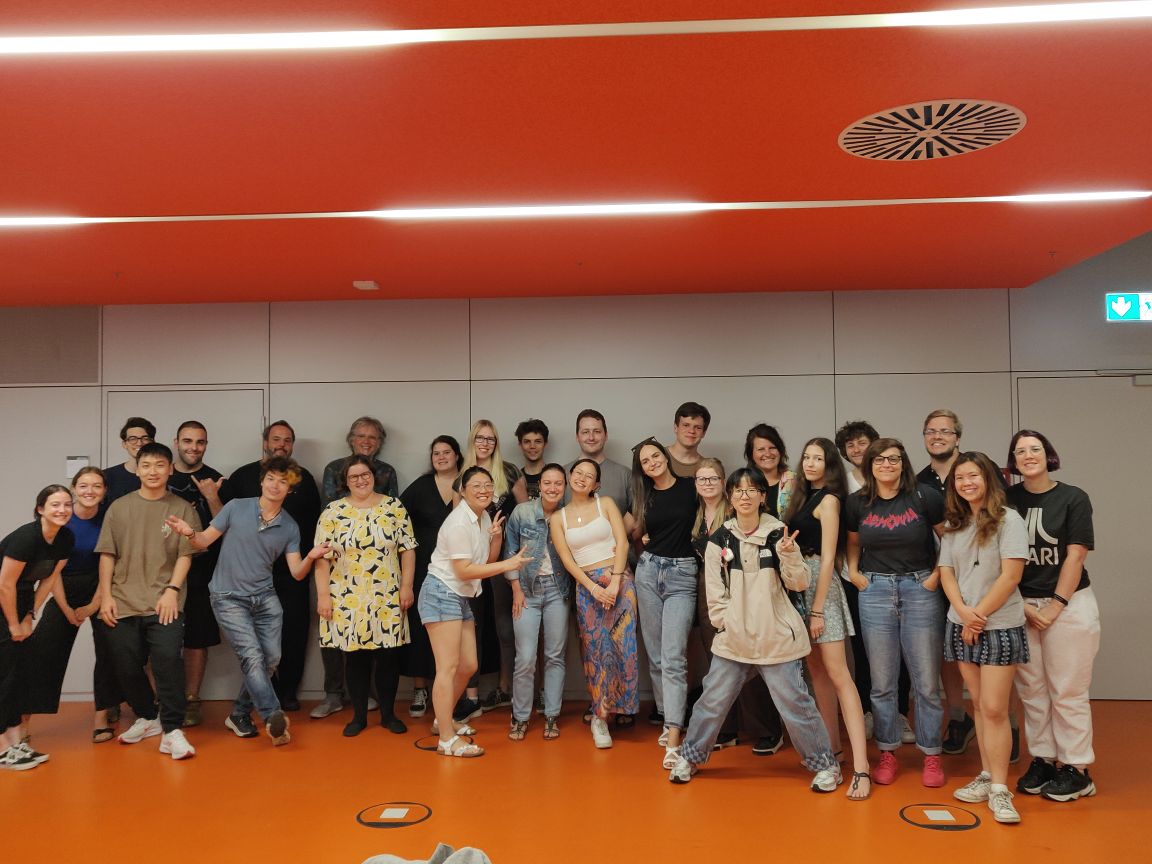
Summer School: Social Gaming: From Cooperation in (Online) Gaming to Game Co-Creation
Impressions of the Summer School Social Gaming: From Cooperation in (Online) Gaming to Game Co-Creation (24.07.2022 to 30.07.2022) at the University of Konstanz
Not only since the corona pandemic video games – according to Al Gore the "New Normal" (Tsai 2017) – are becoming increasingly relevant in our digitised society. Various forms of community building (Taylor 2003; Pearce, Artemesia 2009; Quandt, Kröger 2014), peer-to-peer exchange, DIY practices (e.g. Bulok, Lemieux 2017: 35-41), formation of new communicative and cooperative skills (Payr 2008; Sharritt; Aune, Suthers 2011; Hewet 2020) and negotiation practices, and game-based trust-building strategies (e.g. via Among Us) as well as leadership qualities (Salovaara et al. 2005) bear witness to this development. Nevertheless, the socio-cultural potential of games as an everyday practice is still neglected in favor of other research foci like narrative structures and aesthetic value (Denizel, Sansal, Tetik 2021), identity constructions (e.g. Gray, Voorhees, Vossen 2018), addictive dimensions (Griffiths, Pontes 2020) or effects on violent behavior (e.g. Ferguson 2018). With our Summer School we want to bridge this research gap: Based on our common interest in playful social interactions in the context of cooperative (online) games, we propose to explore how the social, creative and at the same time productive potential in the practice of games can be theoretically grasped, cooperatively applied, and further developed in processes of co-creation (Banks 2013). By focusing on the social-cooperative potential of play, the Summer School will counteract an increasing social polarization on a scientific and intercultural level and promote empathy and alternative perspectives on a phenomenon that is often misunderstood. Students (B.A./M.A.), PhD students and teachers from various disciplines interested in research on digital games (media, cultural and social sciences as well as computer science, etc.) will cooperate and explore the potential of (online) gaming in theory and practice and apply the knowledge thus acquired in different forms of co-creative gaming sessions together with experts from game development, game design and game production. In close cooperation with the Media Lab, the GameLab and the Binational Center for Qualitative Methods at the University of Konstanz, we offer a combination of on- and offline teaching and practical courses. In order to prepare for the Summer School, basic literature, video tutorials, or FAQs will be offered on the communication platform ILIAS (https://ilias.uni-konstanz.de/). The Summer School itself unfolds in three phases:
- Self-study (April-June, off-/online): The participants prepare for the practical game sessions (instructions for the Discord server, tutorials for video recording, tutorials for videographic evaluation, etc.) as well as for the teaching units (relevant research literature, digital teaching modules on (auto-)ethnographic methods, cooperative game development and design, on (online) games, etc.) by means of the material provided on the communication platform ILIAS.
- In three game sessions (April-June, online) the participants and the teaching staff meet on a Discord server. Games will be proposed and selected according to criteria like cooperativeness, quality, competition, recording possibilities, game duration, number of players, etc. The game sessions will be recorded by video, field notes will be taken afterwards. The collected data will be made available to all participants for data evaluation and analysis (during the online teaching week).
- The preparation period, which is essentially online, is followed by an offline teaching week (July, offline) combining theoretical courses with data sessions and practice-oriented units (co-creation) taught by different colleagues (for more detailed information see the schedule on https://seriousgamingkn.wordpress.com/).
